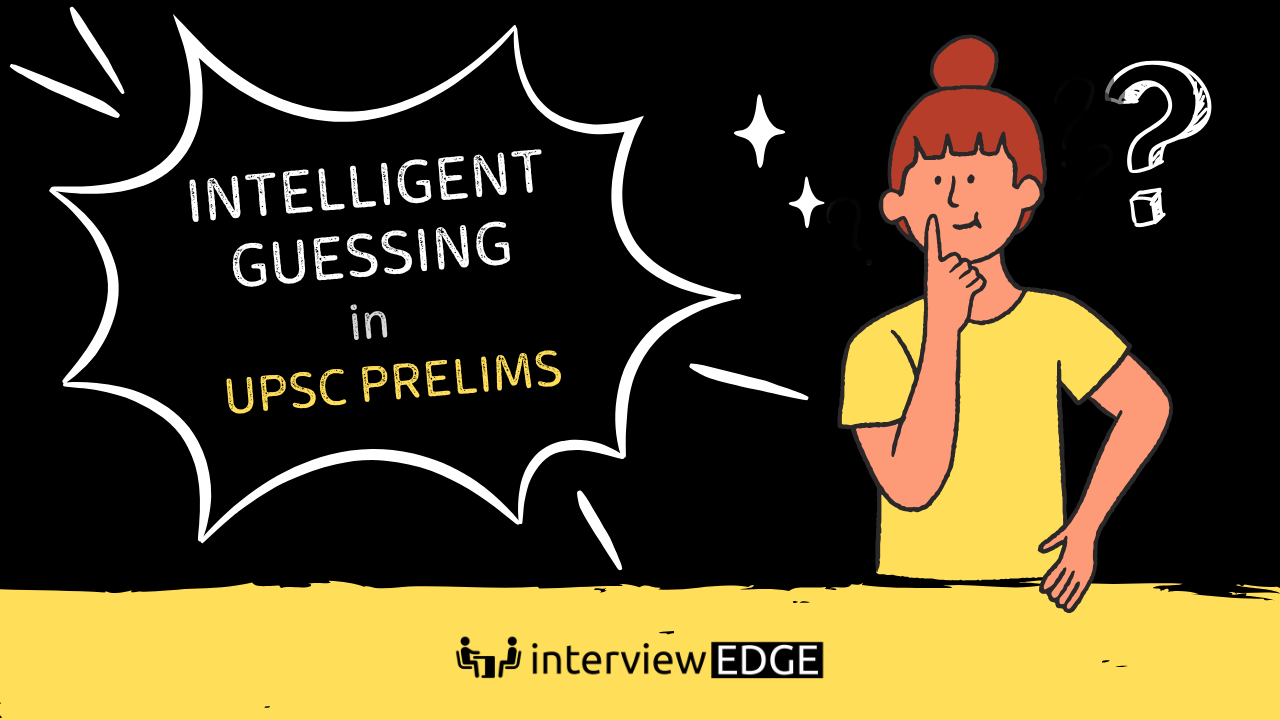
When it comes to cracking the UPSC Prelims, every mark matters — and so does every mistake. With negative marking in play, blind guessing can be dangerous. But smart guessing? That’s a whole different game. It’s not luck, it’s a learned skill, and in this post, we’ll explore how you can master it to maximize your score.
Why Smart Guessing Matters
Let’s face it — no one can know everything. The UPSC Prelims test not just your knowledge but also your analytical ability and decision-making under pressure. Often, you’ll face questions where you can’t recall the exact answer, but you can eliminate wrong options and improve your chances. That’s where intelligent guessing comes in. Done right, it can give you the edge you need.
-
Understanding UPSC’s Question Style
The first step is to understand how UPSC frames its questions:
- Tricky and indirect wording: A question might test interpretation more than rote memory.
- Twisted options: Some statements are designed to appear right — but are factually incorrect or logically inconsistent.
- Extreme language: Words like always, never, only, and must are red flags. UPSC rarely deals in absolutes.
Recognizing these patterns helps you anticipate traps and avoid them.
-
Core Techniques for Intelligent Elimination
Let’s look at some time-tested elimination techniques:
✓ Extreme Words Trap
Be cautious of options with extreme words like “always,” “never,” or “completely.” UPSC tends to favor balanced and nuanced options. Unless you’re 100% sure, these are best eliminated.
✓ Fact Check Logic
Use your knowledge of NCERTs, standard books, and current affairs. If any option contradicts a well-established fact, strike it out immediately.
✓ Reverse Solving
Instead of solving the question directly, try evaluating each option independently. Sometimes working backward is more effective.
✓ Trend Logic
UPSC often avoids highly speculative, controversial, or unverified claims. Eliminate any option that seems too hypothetical or sensational.
-
Two-Option Dilemma: Go or No-Go?
You’re down to two options — now what? Here’s when you should consider guessing:
-
- You recall reading something related before, even if vaguely.
- You can logically connect the dots based on your existing knowledge.
If neither is true, it’s better to skip than risk a negative mark.
-
Probabilistic Advantage: Why Guessing Works (Sometimes)
Intelligent guessing isn’t just intuition — it’s math too.
- If you eliminate 2 options, your guess has a 50% chance of being correct.
- If you eliminate 1 option, you still get a 33% edge over blind guessing.
- Do this over 25–30 questions, and the law of averages might work in your favor — provided your elimination is rational.
So don’t underestimate the cumulative value of good guesses.
-
Avoid Blind Guessing
Let’s be clear: Blind guessing is gambling, not strategy.
If:
- All options look equally unfamiliar
- The topic is completely alien
- You can’t eliminate even one option
Skip it. It’s not worth the penalty. Focus instead on questions where you have a fighting chance.
Conclusion: Guessing is a Skill — Train It
In the UPSC Prelims, guessing isn’t your last resort — it’s a strategic weapon, if wielded correctly. Like all weapons, it needs training. Practice smart guessing in mock tests. Analyze your hits and misses. Over time, your instinct and logic will sharpen.
“Remember: sometimes the difference between falling just below the cutoff and clearing it with confidence is just a handful of smart guesses — make them wisely, and they might change your journey.”
To further sharpen your attempt strategy and maximize your score, explore this comprehensive guide on the ideal number of questions to attempt in UPSC Prelims: How Many Questions Should You Attempt in UPSC Prelims?
